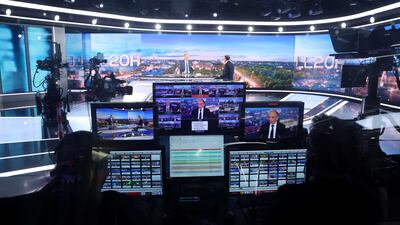The brilliant and incisive Palestinian-American professor, Ibrahim Abu Lughod, was a mentor who taught me some invaluable lessons about politics and history. While he was a profoundly political being, he was at heart a historian and social scientist. He, therefore, cautioned me not to be unduly influenced by each day’s headlines or the reactions of commentators to daily events.
History, he would say, is like the ocean. And daily events are like the waves or the tides that repeat, over and over again. In judging the significance of events, one should not be swayed by the ebbs and flows. It is more important to look below the surface at the deep currents that are shaping these events and play a role in determining their significance and meaning.
I often think of this lesson when I read some of the opinion pieces in the daily press or listen to a number of television pundits commenting on matters ranging from domestic politics to war and peace in various parts of the globe. Like reeds blowing in the wind, they make snap and often uninformed judgements based on what just happened that day. Because they speak with authority, they are believed and are echoed by others. As a result, they help to create an “accepted wisdom” about the meaning of events that, despite being wrong, can shape broad public understanding and even policy. Policymakers, for example, often find it difficult to go against what has come to be believed by a majority of voters. And those who disagree with this “wisdom” are scoffed at and dismissed.
With Dr Ibrahim’s lesson in mind, I’ve tried to avoid this and, as a result, often found myself on the outside of this “accepted wisdom". Examples abound.

In the lead-up to the 2003 US invasion of Iraq, I tried to get the Democratic Party to oppose sending our troops into a battle, the costs, terms of engagement, and long-term consequences of which are unknown. The party leaders wouldn’t allow it to be put to a vote because, said one: “We need to show strength and we don’t want to be on the wrong side of this one.”
I was on a network TV programme during the huge March 8, 2005 demonstrations that demanded the removal of Syrian forces from Lebanon. A respected journalist, who was on the show with me, spoke about the size of the demonstrations and said his “sources” in Lebanon told him that “all segments of Lebanese society were united in this goal". I countered that as much as I too wanted Syria out, we had just finished a poll in Lebanon and found that public opinion in the country was divided right down the middle as to whether the Syrians should stay or leave.
Much the same happened in 2011, when the Obama administration was preparing to bomb Libya. The host of the show on which I was appearing wanted me to agree that removing Muammar Qaddafi was a good thing. I said Qaddafi was an erratic and brutal dictator, but that if we had learned any lesson from Iraq it was that we must beware of unforeseen consequences. In this instance, the tribal fissures in the country were so deep that there was the danger of Libya falling apart and entering a period of prolonged strife. That had to be considered before any rash action was taken. He countered “that wasn’t the answer I was looking for” before moving on to the next guest who gave him the agreement he sought.

It wasn’t just that these commentators were wrong in each of these instances – and, as my mother would say, “wrong at the top of their voices". It was that they were largely uninformed about history, culture and opinion – or, as Dr Ibrahim might have put it, “the deep currents at work in each country". But being informed sometimes doesn’t appear to be important for commentators because if there are any constants in punditry, it’s that lessons are never learned and being mesmerised by the authoritative sound of your own voice is enough to pass for wisdom.
Recall the near euphoria with which the TV commentators greeted George W Bush’s grossly premature “Mission Accomplished” speech. Or the uncritical acceptance that accompanied Donald Trump’s decision to recognise Jerusalem as Israel’s capital. Or, more recently, the certainty expressed that Ukraine had turned the corner and Vladimir Putin’s days were numbered. Or the predictions that there was certain to be a “red wave” that would give Republicans decisive control over both houses of the US Congress.
Imagine if political pundits were scored in the same way we rate the performance of professional athletes. The records of several of them would be so poor that they would be dropped from TV and print and never heard from again.
Once again, it’s not just that the commentators are wrong. It’s that they project such certainty that they are believed, by the public and policymakers alike. And the reason they make the mistakes they do is precisely because they never had Dr Ibrahim as a mentor. They allow themselves to be swayed by a combination of conventional wisdom and the ebb and flow of events and speak lacking an understanding of history or the deeper currents at work in society. That is a recipe for error.


